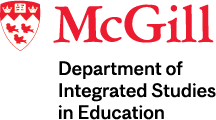 This project brings together university researchers from the Department of Integrated Studies in Education (DISE) at McGill University with students and teachers from a local secondary school to consider the question: In what ways might student-directed inquiry drive a change in practice?
This project brings together university researchers from the Department of Integrated Studies in Education (DISE) at McGill University with students and teachers from a local secondary school to consider the question: In what ways might student-directed inquiry drive a change in practice?
For students, inquiry-based science, technology, engineering, arts, and mathematics (STEAM) generally leads to better conceptual understandings, better retention, and improved skills such as the ability to ask questions, collect data, think creatively, and reason scientifically. Yet, many STEAM teachers struggle to take up more student-directed forms of inquiry due to persistently perceived barriers such as lack of time, resources, professional development, and support from school leadership, and the need to cover content.
Purposeful learning communities (PLCs) built around challenges within a school can support the implementation of real change in practice. At the same time, PLCs generally consist solely of professionals tasked with the change (teachers/school administrators), not those impacted by it (students).
Participation of students in all aspects of the current project is significant. While some studies examine student engagement, outcomes, and motivation as part of change in practice, or recognize students as potential agents of change, there is little work that positions students, their experiences and learning as central to or as drivers of change in practice. There has also been limited work on students as researchers with respect to broader school change in practice.
To support the work of the PLC, the project is framed in ethical relationality (Donald, 2009), and methodologically in participatory action research (PAR) (Kemmis, McTaggart, & Nixon, 2014). The approaches prioritize collaborative, dialogic processes where the expertise, experiences, and understandings of all PLC members are essential to what and how the project progresses. The PLC will thus give voice to students' and the teacher's own experiences of STEAM inquiry so that they may become active agents of change in practice.
References
- Donald, D. T. (2009). The pedagogy of the fort: Curriculum, Aboriginal-Canadian relations, and Indigenous metissage. (Unpublished doctoral dissertation). University of Alberta, Edmonton, AB.
- Kemmis, S., McTaggart, R., & Nixon, R. (2014). The action research planner: Doing critical participatory action research. New York, NY: Springer.
Research funded by: Internal Social Sciences and Humanities Development Grant, 2018-2019
Contacts:
Limin Jao, PhD
(514) 398-4527 Ext. 089696
Department of Integrated Studies in Education
3700 McTavish, McGill University, Montreal, Quebec H3A 1Y2
